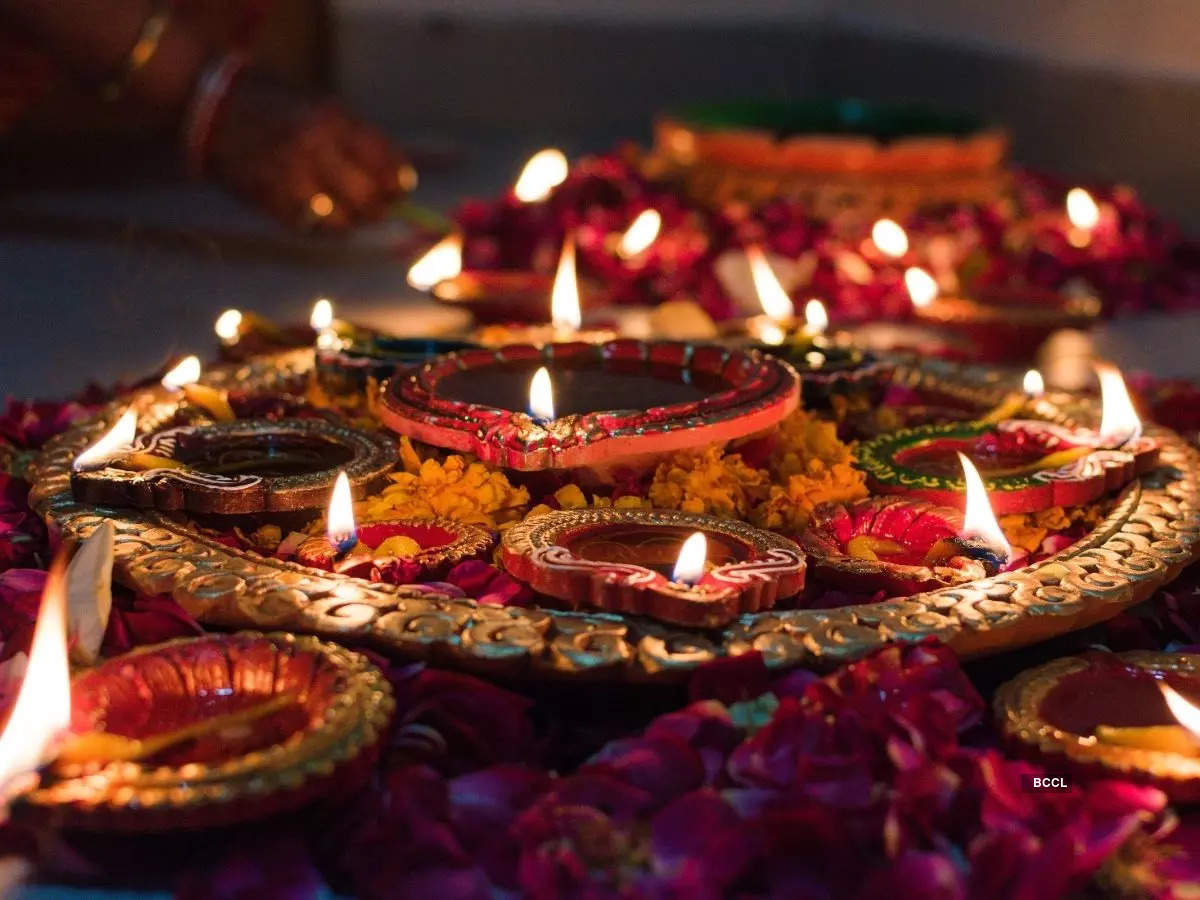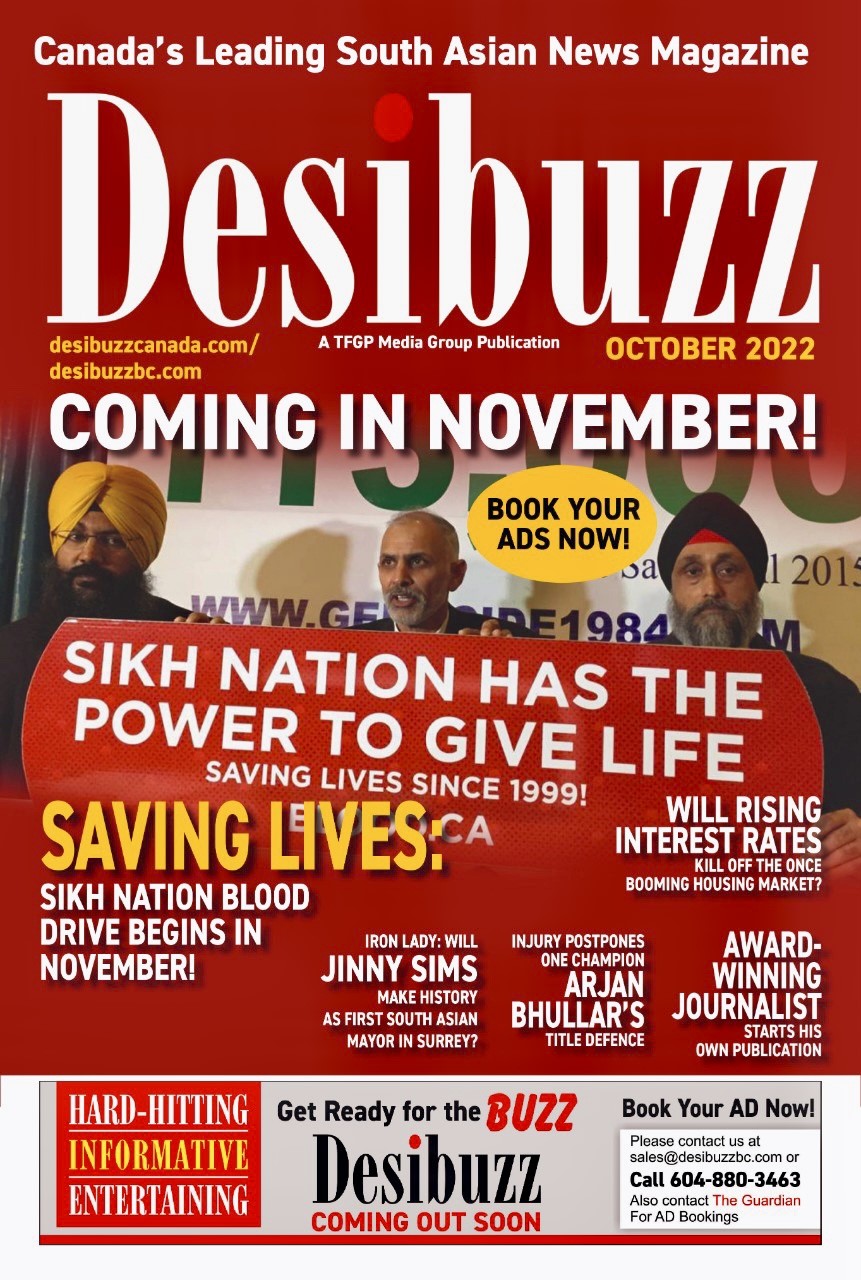DESIBUZZCanada
Events Listings
Dummy Post

International Day Of Yoga To Be Virtually Celebrated Saturday At 4pm

CANCELLED: Coronavirus Fears Kills Surrey’s Vaisakhi Day Parade

ADVERTISE WITH US: DESIBUZZCanada Is The Most Read South Asian Publication Online

SURREY LIBRARIES: Get Technology Help At Surrey Libraries

WALLY OPPAL: Surrey Police Transition Update On Feb. 26

GONE ARE THE DAYS - Feature Documentary Trailer

Technology Help At Surrey Libraries

Birding Walks

Plea Poetry/short Story : Youth Contest

International Folk Dancing Drop-in Sessions
BRIGHT LIGHTS: May Diwali Brighten Everyone’s Life And Bring Immense Hope
- October 25, 2022

By Zile Singh
Diwali or Deepavali is one of the most important Hindu festivals of lights celebrated throughout India in the month of October/November, depending on the Calendar. Not only in India, but this festival is celebrated in Fiji, Guyana, Malaysia, Mauritius, Myanmar, Nepal, Singapore, Sri Lanka, Suriname, Trinidad, and Tobago and recently the Sindh Province of Pakistan. The celebrations are spread over five days, namely – Dhanteras, Narak Chaturdashi, Main Diwali, Diwali Padva and Bhaidooj.
Jains also celebrate Diwali to mark the attainment of Moksha by the 24thTirthankar Lord Mahavir. (599 BC) Also, Gautam Gandhar Swami, the chief disciple of Lord Mahavir achieved omniscience (Kevala Jnana) on the day of Diwali.
Sikhs celebrate it as BandiChhor Divas (Day of Liberation) to mark the release of Guru Har Gobind along with 52 Hindu kings from the prison of Mughal Emperor Jahangir. In the post- Guru Gobind Singh era, Sarbat Khalsa used to meet on Diwali and Baisakhi days in Amritsar to discuss important issues concerning the Panth.
Newari Buddhists in Nepal celebrate Diwali by worshipping goddess Lakshmi.

In the context of the Hindu Epic 'Ramayana', Diwali is celebrated to welcome Lord Ram to Ayodhya after spending fourteen years in exile. During his exile, Ravana, the king of Sri Lanka, kidnapped Rama’s wife Sita. To take revenge, Rama killed Ravana in a battle. According to some historians, Rama had to take Jal Samadhi in the Saryu river to atone for the killing of Ravana. As a Kshatriya, Rama was not supposed to have killed a Brahmin of Ravana's stature. It was in violation of ChaturvarnaMaryada.
The festival of Diwali is a victory of good over evil, light over darkness, wisdom over ignorance etc. In some regions of India, Diwali is associated with the legend of Yama and Nachiketa. The Nachiketa story about right and wrong, true wealth and transient wealth, wisdom and ignorance, mind and intellect and to see the light and darkness through meditation is recorded in the Katha Upanishad composed in 1st millennium BC. The religious significance of Diwali varies from region to region in India, depending on the schools of Hindu philosophy, legends, and beliefs. However, the main festival is celebrated in the following sequence:

Dhanteras is the day of the churning of the cosmic ocean between the forces of good and of evil. This day marks the birthday of Lakshmi – the Goddess of Wealth and Prosperity and the birthday of Dhanvantri – the God of Health and Healing. Since 2016, Dhanteras has been declared as “National Ayurveda Day in India”.
Narak Chaturdashi is called Choti Diwali. According to Hindu literature, Asura Narakasura was killed on this day by Lord Krishna, Satyabhama and Kali. It was the victory of light over darkness.
After Main Diwali, Padva is to celebrate the love and devotion between the wife and the husband. Last day of the festival isBhaidooj. It marks the sister-brother affinity.
Festival of Hope: The Hindu, Sikh and Jain communities organise events for charitable causes on this day. At the Indo- Pak border (Attari – Wagah) every year on Diwali the Indian soldiers offer traditional Indian sweets to the Pakistani soldiers and as a return gesture, the Pak soldiers offer an assortment of Pakistani sweets.
Lately, with the increasing strength of the Indian Diaspora in countries like the UK, USA and Canada, it has become necessary for the governments of these countries to become a part of the celebration of various Indian festivals, including Diwali.Canada Post issued a new commemorative stamp in honour of Diwali. (picture above)
In spiritual and philosophical terms, the following quotes will prove that light and darkness complement each other. We must understand both. One cannot stand on its own. -
“We can easily forgive a child who is afraid of the dark; the real tragedy of life is when men are afraid of the light (truth)” - Plato
“I will love the light for it shows me the way, yet I will endure the darkness for it shows me the stars.” -- OgMandino
Let us celebrate this great festival in the light of composure and equanimity and reflect on our dark side with the help of a small Diya. “Everyone is a moon and has a dark side which he never shows to anybody.” - Mark Twain
Issues: There has been a growing concern about the environmental and health impact of Diwali like Air pollution and its aftereffects, burn injuries and unwanted expenditure on fireworks.
Message: Travel light, live light, spread the light, be the light. Eat sweet and speak sweet. Let us retrieve our past glory and reject the dark side of division of humanity on the basis of race, religion, colour and caste.
Zile Singh is a well respected Columnist, Writer and a Vipassana Meditater. He has a Post-Graduate Diploma in Human Rights. He can be reached at zsnirwal@yahoo.ca












